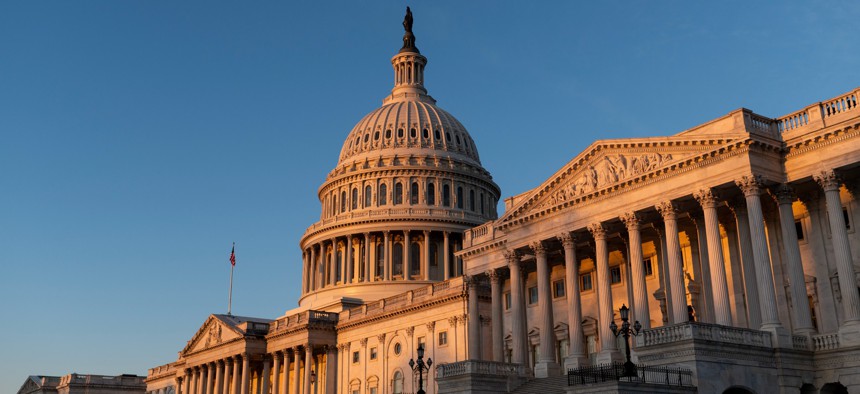Technology trade groups urge Congress to add $300 million to the TMF

Bill Clark/CQ-Roll Call, Inc via Getty Images
Leading government technology groups want appropriators to write legislation backing the full White House budget request for the Technology Modernization Fund.
A coalition of technology groups urged appropriators to invest at least $300 million in the Technology Modernization Fund (TMF) for fiscal year 2023, along with additional funding to help agencies mature their zero trust capabilities.
The Information Technology Industry Council, the Alliance for Digital Innovation, Professional Services Council, National Defense Industrial Association and five other leading government technology organizations sent a letter to the heads of the House and Senate appropriations committees and the Financial Services and General Government subcommittees calling for "sustainable, strategic, and long-term" investments in modernizing federal IT.
"Recent efforts to fund federal IT modernization are crucial to realizing a stronger, more capable and resilient federal government," the letter read. "Yet these prior investments represent more of a strong down payment than a capstone of efforts to address the very considerable technology modernization backlog faced throughout the federal government."
The White House fiscal year 2023 budget request includes $300 million for the TMF, in addition to a broad range of IT and cyber investments across civilian agencies totaling $65 billion. The TMF received a $1 billion funding injection through the American Rescue Plan in 2021, leading to a surge in proposals from agencies hoping to ramp up their various IT modernization initiatives.
The TMF Board then rolled out $311 million in new awards for a total of seven projects in September of last year, and earlier this month announced its first-ever investment in the Department of Veterans Affairs to support the agency's transition to Login.gov.
The White House meanwhile issued a series of executive orders meant to improve the nation's cybersecurity and resiliency for critical infrastructure industries, including an action which directed agencies to develop and expand their zero trust capabilities.
In their letter to the appropriations committee, the tech groups said "additional funding should be made available for agencies that are just getting started on their zero trust journeys."
The groups also called for a new, whole-of-government IT modernization strategy that stresses performance improvements, simplifies the user experience with government systems and improves federal cyber posture.
"Responsibility for developing and implementing an improved and broadly-impactful IT modernization strategy is borne by leaders in the executive branch," the tech groups wrote. "However, leadership and engagement from Congress—in addition to making crucial investments—is also important."
NEXT STORY: GAO dismisses final CIO-SP4 protests



